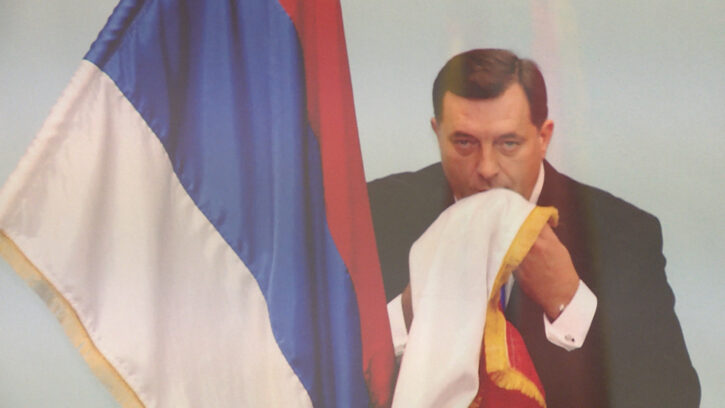
A few leaders would call their own country “an impossible state” and a fewer would advocate for it to break up, American magazine The Atlantic wrote in a recently published article reviewing the political career of Bosnian Serb leader Milorad Dodik, now Bosnia Presidency Chairman.
Author Maxim Edwards wrote in a lengthy article that the story of Dodik's rise is “one of a far cannier political operator than his brash public image might suggest.”
Once called “a breath of fresh air” two decades later the Bosnian Serb leader is seen “as a nationalist infant terrible threatening a fragile peace.”
Milorad Dodik is a Serb Bosnian, the leader of the strongest party in Bosnia's semi-autonomous Republika Srpska (RS) entity. After the years of absolute rule in RS, first as its Prime Minister and then as its President, he has advanced to Bosnia's tripartite Presidency being elected last October as the Serb member from this Serb-dominated entity.
“I am a Serb… Bosnia is only my place of employment,” Dodik said a day after taking the office.
The author argued that Dodik's story was a familiar one, the story of a politician “changing his stripes when the moment suits,” and moreover “courting Russia as an ally.”
“But here in Bosnia, the stakes are higher, not just for the people who live here, but for the legacy of a significant American foreign-policy achievement, too. By taking aim at the Bosnian state, Dodik is, in effect, targeting the Dayton Accords, one of the signature peace deals of the 20th century. When signed at an American air base in 1995, the agreement ended what had been Europe’s most devastating conflict since the Second World War, one which had cost more than 100,000 lives,” reads the article emphasising that Dodik's threats to undermine the peace treaty have earned him US sanctions.
Besides openly supporting a former RS leader Radovan Karadzic, who was found guilty by an international court for genocide in Srebrenica, Dodik also objects the country’ bid to join NATO, reads the article.
“It’s no surprise, then, that Dodik is characterized in the West as pro-Russian, a label he flaunts,” wrote Edwards.




